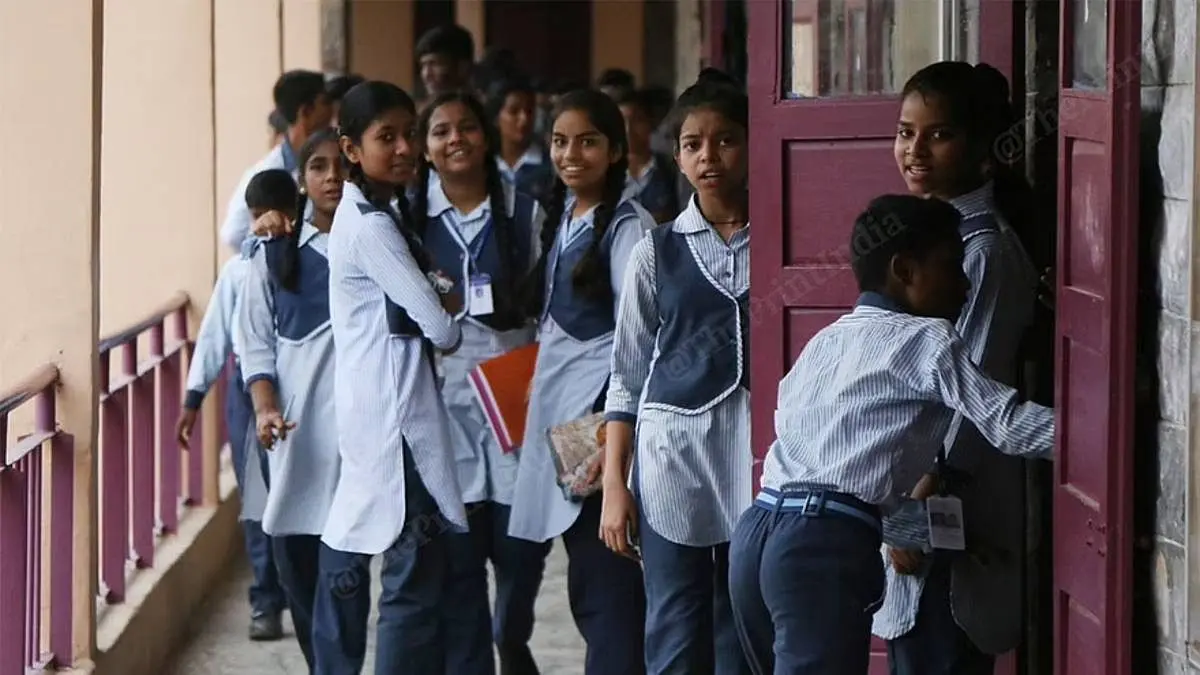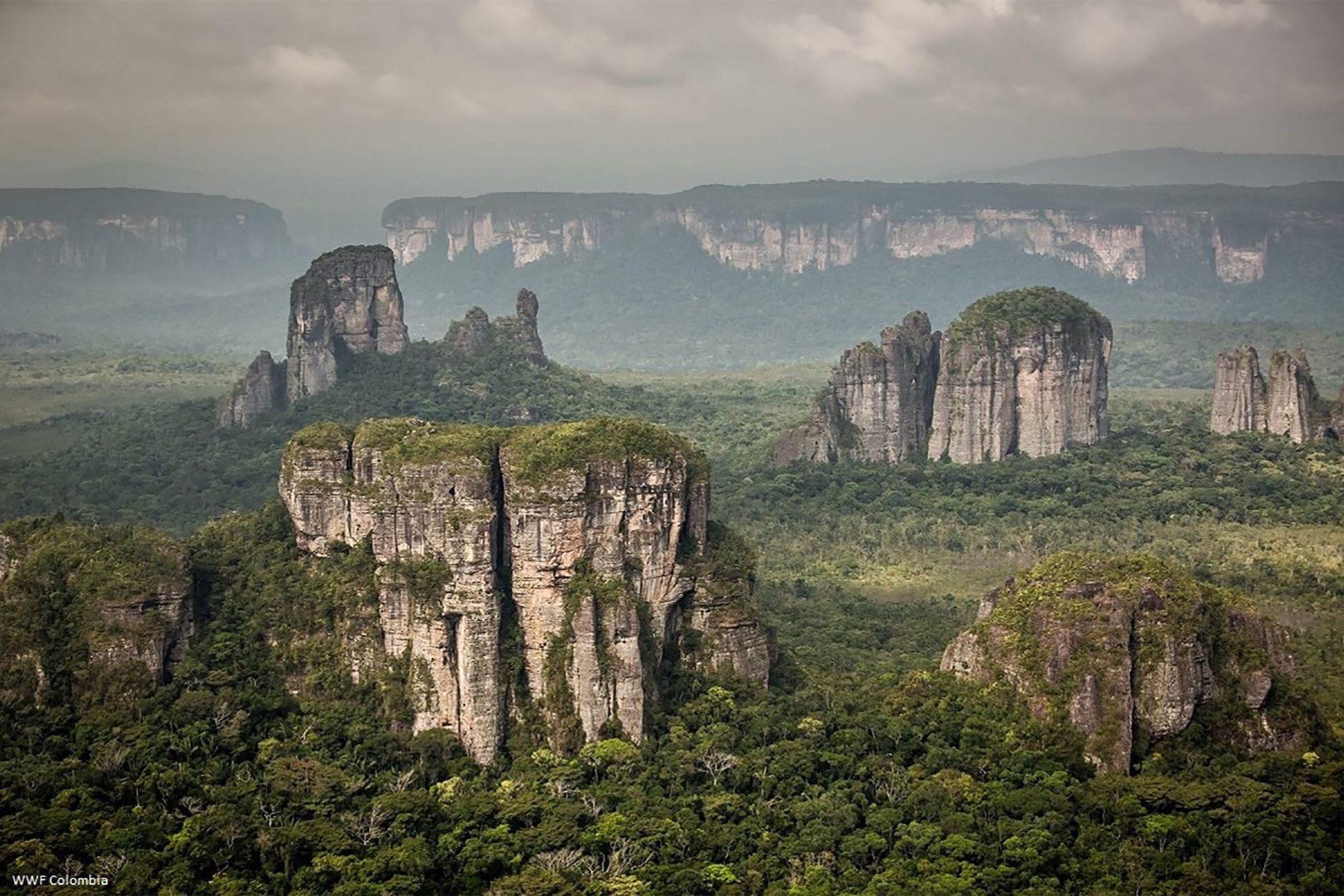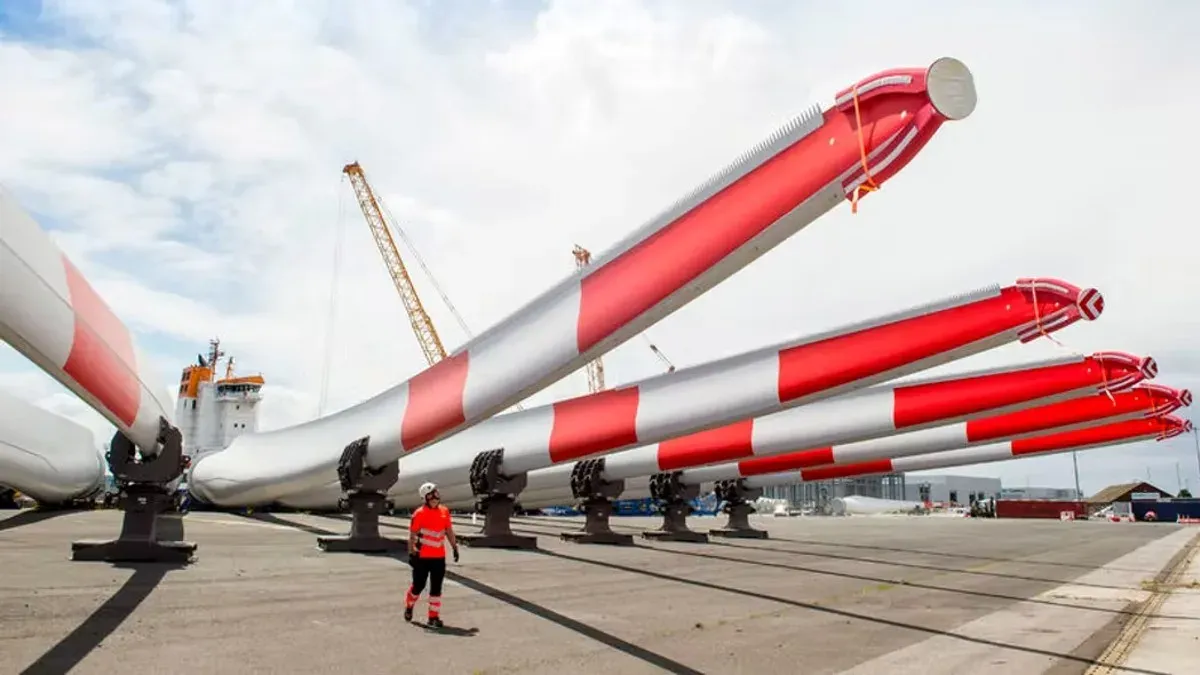This is our fortnightly roundup of good news from around the world. If you'd like to get this in your inbox, you can subscribe for free below.
Get good news in your inboxGood news you probably didn't hear about
Humanity is making steady progress towards eliminating mother-to-child transmission of hepatitis B. By 2020, 190 of 194 WHO member states had introduced a universal infant HepB vaccination, compared with 186 in 2016, and 110 states now provide a birth dose to all newborns, a 10% increase from 100 in 2016. WHO
South Nigeria has successfully eliminated maternal and neonatal tetanus. thanks to increased vaccination rates and skilled birth attendees. It's usually caused by unclean abortion or delivery and infections during the first 28 days of life. South-East and South-West Nigeria achieved elimination in 2017 and 2019, respectively. WHO
Ghana, Kenya, and Malawi will expand their rollout of a malaria vaccine for children, thanks to newly announced funding of nearly US$160 million. The three countries were part of a pilot in 2019 that saw 1.3 million children protected, resulting in a substantial drop in hospitalization and child deaths. WHO
A landmark ruling in India has expanded the scope of the country's abortion laws to allow single women to end a 24 week pregnancy if they are a minor, or survivors of sexual violence. India currently allows abortion for all women until 20 weeks of pregnancy. Independent
Secondary school dropout rates among 11-14 year old girls in India have declined to their lowest level ever, from 18.4% in 2017 to 13.7% in 2021. That means almost two million more girls staying in school each year, thanks to a government scheme offering free uniforms and textbooks, sanitary pads and self-defence training. The Print

Despite COVID disruptions, Chad has increased its vaccination coverage, with the number of children receiving vaccines against diphtheria, tetanus, and pertussis increasing from 50% in 2019 to 58% in 2021. It’s an incredible feat, considering in 2017 Chad had one of the lowest levels of vaccination in the region. Gavi
Cambodia’s poverty rate has plummeted over the past two decades from nearly 40% in 2009 to 17.8% in 2020, driven by rising wages and earnings. The country’s COVID-19 cash transfer programme also helped, assisting 2.8 million people from poor and vulnerable households. Vietnam Plus
Andorra has approved a new family code that eliminates legal differences between married heterosexual couples and gay and lesbian couples in civil partnerships, and the Caribbean nations of Antigua and Barbuda have decriminalized gay sex, removing a colonial era law.
After decades of advocacy, a big victory for LGBTQ+ rights in Michigan. The state has amended its civil rights legislation to ban discrimination in housing, employment, education, and public accommodation against people because of their sexual orientation.
OK you probably did hear about this one. A huge win for womens rights in Kansas with the state voting to protect abortion in this week’s referendum. Kansas is the first state to put abortion rights to a vote since the overturning of Roe vs. Wade and will now remain a safe haven for abortion in the Midwest. Guardian

British Columbia has become the first Canadian province to end immigration detention in jails. Over the past five years, hundreds of immigrants have been incarcerated in BC with no legal limit on duration. The victory is thanks to the human rights campaign #WelcomeToCanada that launched last October. HRW
Today’s decision is a momentous step. This is a true human rights victory, one which upholds the dignity and rights of people who come to Canada in search of safety or a better life.
Ketty Nivyabandi, Secretary General of Amnesty International Canada
The number of Americans living without health insurance has hit a record low of 8%. Since 2020, 5.2 million more people have received coverage, with the biggest uptake by people below the federal poverty line. The welcome news is thanks to extra federal funding during the pandemic and efforts to expand the Affordable Healthcare act. Fierce Healthcare
After a decade of debate, Brazil’s Drink-Driving Law is fully constitutional, and all drivers must now have a blood-alcohol content of zero. Alcohol has been attributed to nearly 10% of all road deaths, which are the leading killer of children aged 5 and 14. This legislation will make a big difference. WHO
Numerous European countries are experimenting with free public transport. Spain, Germany, Estonia, and Luxembourg are already on the bandwagon while Ireland, Italy and Austria have reduced fares or introduced vouchers for lower-income workers. It’s an interesting idea - one day public transport could be a basic human right. Wired
The difference between crime rates in New York and its residents' perception of them has never been wider. Widespread anxiety obscures the fact that crime is actually at decades-long lows. The reason for the mismatch? Views on crime are influenced more by what people see in the news than by hard numbers. Bloomberg

The only home we've ever known
A milestone five decades in the making, the UN General Assembly has declared access to a clean, healthy, and sustainable environment to be a universal human right. This is a profound shift in the way we see ourselves, and a crucial part of the moral framework we need if our species is going to succesfully make it out of our industrial phase.
From a foothold in the 1972 Stockholm Declaration, the right has been integrated into constitutions, national laws and regional agreements. Today’s decision elevates the right to where it belongs: universal recognition.
Inger Andersen, United Nations Environment Chief
A new electricity law in Bosnia has banned the construction of small hydroelectric power plants, saving the country’s 244 rivers from over 350 planned projects. The victory comes after a decade of court battles and protests by Balkan activists to protect Europe’s last wild rivers. ABC
Meat consumption has fallen by 12% in Germany in the last decade, from 63 kg per person in 2011, to 55 kg today. Understanding the causes behind Germany's newfound love for plant-based food could be critical in figuring out how to slow climate change - meat and dairy account for around 15% of global greenhouse gas emissions. Vox
Colombia has launched a $245-million initiative to support the creation, expansion, and improvement of 32 million hectares of protected areas in the next decade. The country contains around 10% of the world’s biodiversity and the project aims to create over 3 million hectares of new protected areas and biological corridors, and 15 million hectares of marine protected areas. Mongabay

The US government will plant one billion trees over the next decade to revitalize millions of acres of burned and damaged forests across the American West. Wildfires have devastated woodlands in recent years creating a reforestation backlog of 4.1 million acres. Over the next few years planting will increase from 60,000 to 400,000 acres of trees each year. Smithsonian
Tigers are having a good year. Officials in Nepal just announced that numbers have more than doubled in a bit more than a decade, and last week, a wildlife group reported there are as many as 5,500 tigers prowling jungles and swamps across Asia, a 40% jump from its 2015 assessment. WaPo
Jaguars have been born in an Argentine wetland 70 years after they went extinct from the area, and in Brazil, the Spix's macaw has made its return to the wild, two decades after it was last seen in nature. These kind of reintroduction efforts aren't just symbolic - the other animals and plants that live in the associated conservation areas also benefit.
A conservation program in Cambodia is bringing gibbons back to the iconic Angkor Wat temple, decades after poachers destroyed populations. Since 2013, four different pairs of gibbons have returned to breed, along with 40 other species including silvered langurs, muntjac deers, smooth-coated otters, leopard cats, civets, wreathed hornbills, and green peafowl. Taipei Times
Iguanas are reproducing on Santiago, one of the Galapagos islands, more than a century after they disappeared. In 2019, 3,000 iguanas were reintroduced from a nearby island to restore the island’s ecosystem and they have been hard at work since: removing soil, dispersing seeds and even providing food for other animals. ABC
Bighorn sheep have returned to Nebraska’s high plains a century after they were wiped out by overhunting and disease. Scientists and conservationists started reintroducing bighorn in 1981 and the 40 year program has resulted in a flourishing population of 320 sheep today. Yale360
After 22 years of restoration, a 1,600 acre glen in southern Scotland called Carrifran has transformed a once overgrazed barren landscape into a thriving ecosystem with the return of foxes, badgers and otters and tree species that existed in the area thousands of years ago. Independent
Carrifran 1999 and today 27th July 2022.
— Rewild Scotland 🏴 (@RewildScotland) July 27, 2022
Landscape scale habitat restoration.#RewildScotland #RewildOurPlanet pic.twitter.com/1eENWGk6HJ
Farmers and scientists in Mexico City are working together to save 6,000 acres of Indigenous agricultural wetlands that are a source of local food production and home to the critically endangered axolotl. The waterways of Mexico are the only natural habitat of the axolotl, whose extraordinary regenerative abilities to grow new limbs could hold the biological secrets to renewing human tissue. Undark
Non-profit organisation The Ocean Cleanup has officially removed more than 100,000 kg of plastic from the Great Pacific Garbage Patch. The milestone is thanks to Jenny, a device that has swept over 3000 km2 of ocean, capturing plastic and funnelling it into a net. A 1,000 Jennys, and the Garbage Patch is gone.
Central California will halt new oil and gas leases across more than one million acres of public lands until the potential health and environmental risks are assessed. The moratorium comes after several years of legal challenges from environmental groups and local communities.
Central Valley residents and grassroots activists work every day to make their communities healthy, and today they got a win in the fight against air and groundwater pollution from oil and gas development.
Daniel Rossman, The Wilderness Society
Proving that religion and conservation can go hand in hand, India's temples are playing a critical role in protecting the country's fauna and flora, with an estimated 100,000-150,000 sacred groves across the country, preserving biodiversity and the habitats of endangered species. BBC

Saving the world is cheaper than ruining it
The big news in energy circles right now is obviously the possibility of a climate deal in the United States. We're holding off on the celebrations until it passes Congress, but if it does, we'll have to issue a mea culpa on our last edition. We're very, very hopeful, we just don't want to be disappointed again.
In the meantime, did you hear lawmakers in Germany just approved their own version of a Green New Deal? $180 billion to be spent between 2023 and 2026 to accelerate the shift to an economy that’s cleaner and less dependent on Russia for energy supplies. Bloomberg
Solar in Germany generated a new record in July 2022, accounting for roughly a fifth of the country’s electricity generation and also marking the third record month in a row. Only coal plants now generate more electricity, accounting for 21.9%. Total renewables share reached 50.6% in July. Clean Energy Wire
Global coal plant construction peaked in 2015 at 107 GW. By last year, it had dropped to 45 GW, and in the first six months of 2021 only 13.8 GW has been built. 11.4 GW has been retired during the same period, meaning the world has only added 2.4 GW of coal capacity this year. On current trends, humanity will start reducing total coal-fired capacity in 2023. Global Coal Plant Tracker
Spain's energy minister says Europe is close to a game-changing overhaul of its power market that separates the pricing of dirty energy and clean energy, Ireland has reached a deal with its farmers to cut agricultural emissions by 25% by 2030, and in Greece, solar energy is transforming the country's coal-laden 'Valley of Tears.'
Somewhere in the North Sea, the world's first commercial installation of a wind turbine with recyclable blades has just been completed. The 81 metre long blades are made by Siemens, and will also be available in 108 metre and 115 metre versions.
We’ve brought the technology to market in only ten months: from launch in September 2021 to installation at RWE’s Kaskasi project in July 2022.
Marc Becker, CEO, Siemens Gamesa Offshore Business Unit

China built nearly 31 GW of new solar power capacity in the first half of this year, up 137% from a year earlier, with full-year installations on course to smash all previous records. The country's total solar power capacity is now 340 GW, up by a quarter compared to last year. Reuters
Big news on industrial emissions in China. Companies in seven key sectors with annual revenues over $2.9 million have been ordered to reduce energy consumption by 13.5% by 2025 compared to 2020 levels. This kind of thing wasn't supposed to happen for at least another decade - until very recently industrial emissions were considered 'the hard stuff'. SCMP
It gets better. China’s new emissions trading system is already the world’s largest carbon market, three times bigger than Europe's. It's about to grow another 70% under plans to add heavy industry, making it the single largest global climate policy, covering more emissions than the rest of the world's carbon markets put together. Forbes
Wouldn't it be great if India did something like that as well?! Oh, would you look at that. It appears an announcement is imminent on an ETS for major emitters in the country's energy, steel and cement industries. That would mean carbon markets in three out of four of the world's four largest carbon culprits. Bloomberg
In case you missed it, green hydrogen now costs less than fossil gas in eight European countries. You have to hand it to Putin - his determination to speed up humanity's decarbonization efforts knows no bounds. WSJ

German steel producer Salzgitter has committed $723 million to the first stage of decarbonizing its business — representing 1% of Germany’s carbon emissions — by 2033. It's the largest investment in green steel to date (larger investments have been announced by rival steelmakers LKAB, SSAB and ArcelorMittal, but that funding has yet to be approved). Recharge
India's state-run energy transition company is planning a $10 billion tender for 50,000 electric buses to help the world's third largest emitter decarbonize public transport. Its managing director, Mahua Acharya, says the country could electrify all its two-wheelers and public buses within the next seven years. Bloomberg
Porsche says that its electric cars will be as profitable as its conventional cars within two years. Automakers have long lamented the thin profit margins on EVs, which have always been more expensive to make and held less appeal to customers. Now though, with manufacturing facilities scaling up and consumer interest on the rise, things are starting to change. Yale360
In Norway, new car registrations are now 89.9% fully electric and 11.2% hybrid (and plugin vehicles are covering more ground than ICE counterparts). In the Netherlands, plugins now account for 34% of all new car sales, and Volvo says plugins accounted for 31% of sales in 2Q 2022, up from 24% last year.
China sold 565,000 new plugin vehicles in June this year - 28% of market share. Fully electric vehicles alone accounted for 22% of new auto sales. If electrification continues at this pace, sales of new cars in the largest automotive market in the world will be majority electric within the next three years. Clean Technica
Take a moment to let that one sink in.

That's it for this fortnight, thanks as always for reading.
It feels like there's a bit of a mood shift happening right now. Can you feel it? Or is that just us? Maybe it's just us.
Regardless, we'll see you in 14 days.
Much love,
FC HQ






